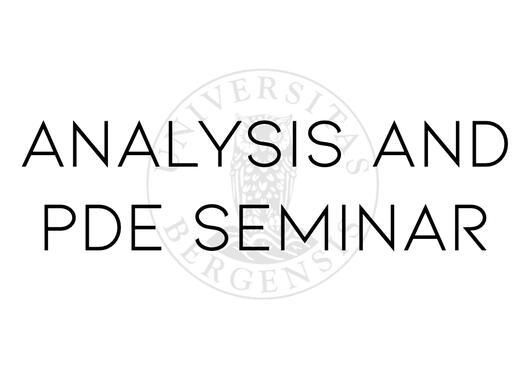Fourier uniqueness pairs and discrete unique continuation for the Schrödinger equation
Torunn Stavland Jensen, Ph.D. Student @ Department of Mathematics, UiB

Main content
Speaker: Torunn Stavland Jensen, Ph.D. student @ Department of Mathematics, UiB
Abstract: A pair of sets (A,B) such that if the function f vanishes on A and the Fourier transform of f vanishes on B implies that f is identically zero is called a Fourier uniqueness pair. The problem of finding Fourier uniqueness pairs is connected to uncertainty principles. After a breakthrough in this field by Radchenko and Viazovska in 2019, several new Fourier uniqueness results have been proved.
Applications to PDEs: Since the solution of the free Schrödinger equation can be written in terms of the Fourier transform, it is possible to obtain unique continuation results for the free Schrödinger equation by applying the Fourier uniqueness results. Therefore, it is natural to wonder whether these results also hold for Schrödinger equations with potential and nonlinear Schrödinger equations(NLS).
This talk will focus on works by J.P.G Ramos and M.Sousa and J.P.G Ramos and C. Kehle where they in the first work proved a Fourier uniqueness result, and in the second work adapted these techniques to prove a «discrete unique continuation» result for the cubic NLS and Schrödinger with potential. We will also discuss how we aim to improve these results for the Schrödinger equation and explain the techniques that are used. This is planned to be a collaboration with D. Pilod and J.P.G. Ramos.



